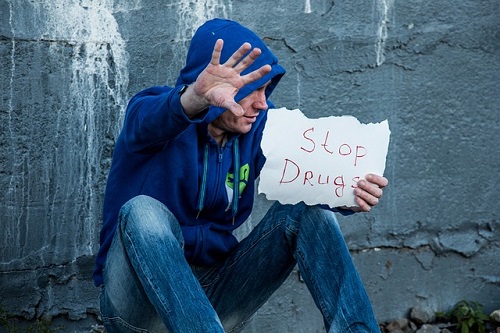Talking to your teenager about drugs and alcohol can be a sensitive but crucial conversation. However, before you strike that sensitive topic, as a parent you may want to know what would be the triggers to your teenager doing drugs and alcohol. It’s important to understand these factors so that you can address them proactively. Some of the common factors include:
Pressure from friends or peers who use drugs can be a significant influence on a teenager’s decision to experiment. Adolescents may feel the need to conform to their social group or may be encouraged to try drugs by friends who perceive it as “cool” or “normal.” When the pressure of fitting in becomes too much, they become victims. Pressure is spiked up by curiosity. Curiosity about the effects of drugs is a common reason why teenagers experiment with substance use. They may be curious about how it feels to be under the influence or may want to explore the unknown.
Another reason could be stress and coping mechanisms. Teenagers face a myriad of stressors, including academic pressures, social challenges, family conflicts, and concerns about the future. Teenagers may turn to drugs as a way to cope with stress, anxiety, or other emotional issues. They may use substances as a means of escaping from problems or numbing difficult emotions.
Parental Influence is another common factor contributing to indulgence in drugs and alcohol. The behavior and attitudes of parents or caregivers influence a teenager’s likelihood of using drugs. Teenagers who have parents who use drugs or have permissive attitudes towards substance use may be more likely to experiment themselves. As a parent being a good role model to your child shapes their behavior to a greater extent.

Accessibility of the drugs makes the older kids vulnerable to drug use. Easy access to drugs can increase the likelihood of experimentation. Teenagers who have access to drugs either through friends, older siblings, or other sources may be more tempted to try them.
Teenagers who struggle with mental health issues such as depression, anxiety, or trauma may be more vulnerable to substance use as a way to self-medicate or alleviate symptoms.
Lack of education or awareness about the risks and consequences of drug use can also contribute to experimentation. Teenagers who are not adequately informed about the dangers of drugs may be more likely to try them without fully understanding the potential consequences. Such teenagers gain knowledge through media Influence. Media portrayals of drug use in movies, television shows, music, and social media can glamorize substance use and influence teenagers’ perceptions and attitudes towards drugs.
Socioeconomic factors such as poverty, unstable home environments, or exposure to violence and trauma can also increase the risk of drug use among teenagers. These factors may contribute to feelings of hopelessness or a lack of opportunities, leading some teenagers to turn to drugs as a way to cope.
Genetic Predisposition can play a role in a teenager’s susceptibility to drug use. Adolescents with a family history of substance use disorders may be genetically predisposed to addiction and may be at higher risk of experimenting with drugs themselves.

Talking to my Teenager about Drugs and Alcohol; How to Go About It
Choose the Right Time and Place: Find a time when both you and your teenager are calm and relaxed, and there are minimal distractions. Choose a private setting where you can have an open and honest conversation without interruptions.
Start Early: It’s never too early to start talking to your teenager about drugs and alcohol. Begin the conversation during their preteen years and continue it as they grow older. This allows you to establish open communication and set clear expectations from an early age.
Be Honest and Direct: Be honest with your teenager about the risks and consequences associated with drug and alcohol use. Use clear and straightforward language that they can understand. Avoid exaggerating or using scare tactics, as this can backfire.
Listen to Their Perspective: Encourage your teenager to share their thoughts, feelings, and any questions they may have about drugs and alcohol. Listen actively and validate their concerns without judgment. This helps build trust and encourages open communication.
Provide Accurate Information: Make sure your teenager has accurate information about the effects of drugs and alcohol on the body, brain development, and overall health. Use reputable sources such as medical websites or educational materials to support your conversation.
Discuss Peer Pressure: Talk to your teenager about peer pressure and how to handle situations where they may feel pressured to try drugs or alcohol. Teach them assertiveness and strategies for saying no, such as suggesting alternative activities or leaving uncomfortable situations.
Set Clear Expectations and Consequences: Communicate your expectations regarding drug and alcohol use, including rules and boundaries. Discuss the consequences of breaking these rules, such as loss of privileges or increased supervision. Be consistent in enforcing these rules.
Be a Positive Role Model: Set a good example by demonstrating responsible behavior around drugs and alcohol. Avoid using substances excessively or in front of your teenager, and practice healthy coping mechanisms for stress and social situations.
Encourage Healthy Coping Skills: Teach your teenager alternative ways to cope with stress, peer pressure, and other challenges that don’t involve drugs or alcohol. Encourage them to pursue hobbies, exercise, talk to trusted friends or adults, or seek professional help.
Reinforce Positive Choices: Praise and reinforce positive choices and behaviors related to drug and alcohol avoidance. Let your teenager know that you are proud of them for making responsible decisions and encourage them to continue doing so.

Summary
Remember that talking to your teenager about drugs and alcohol is an ongoing conversation, not a one-time event. Keep the lines of communication open and be available to support them as they navigate the challenges of adolescence.
Be aware of the factors leading to drug and alcohol abuse. By understanding these factors, parents and caregivers can take proactive steps to address underlying issues, promote healthy coping mechanisms, and educate teenagers about the risks associated with drug use. Open communication, positive role modeling, and supportive relationships are essential in helping teenagers make informed and responsible choices regarding substance use.

